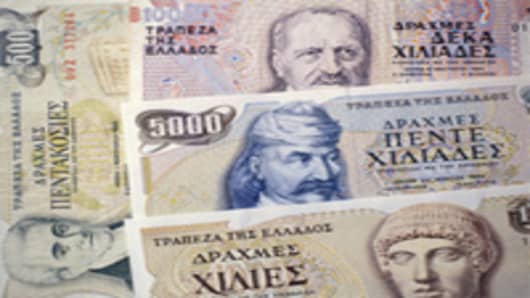Membership in the Euro decreases the cost of borrowing for euro-zone members because the world trusts that the currency won’t be inflated at a rate that destroys the value of Euro-denominated sovereign bonds. It acts as a check on the ability of national governments to monetize their debts.
But if members can leave the Euro and redenominate their debts in a new national currency, this check is much less effective. In fact, it might not work at all. This would push the borrowing costs of every country on the euro up.
The possible exception to this is Germany. No one is fearful that Germany will monetize their debts, as the hyperinflation of the Weimar Republic supposedly created a permanent anti-inflation consensus among the Germans.
This partly explains why the Germans can afford to hold out longer and harder against bailing out the Greeks—they have less to lose than other Eurozoners.
Incidentally, isn’t it a bit ironic that Germany’s experience with hyperinflation has everyone in the world convinced that Germany is dead set against inflation? If you translate this into the Greek situation, wouldn’t it mean that after Greece defaults, new Greek bonds would be considered the safest in the world? And if that’s the case, then the bond markets wouldn’t “punish” Greece for defaulting—they’d reward the country.
Tell me again why a default is off the table?
_________________________________________
Questions? Comments? Email us atNetNet@cnbc.com
Follow John on Twitter @ twitter.com/Carney
Follow NetNet on Twitter @ twitter.com/CNBCnetnet
Facebook us @ www.facebook.com/NetNetCNBC



